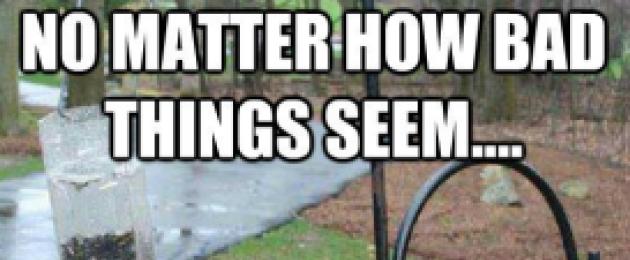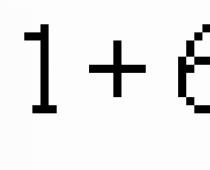More meanings of the word and translation of HOW ARE YOU? from English into Russian in English-Russian dictionaries.
What is and translation of HOW ARE YOU? from Russian into English in Russian-English dictionaries.
More meanings of this word and English-Russian, Russian-English translations for HOW ARE YOU? in dictionaries.
- HOW ARE YOU? — kumusta ka?
English-Visayan vocabulary - HOW ARE YOU? — How is it going? How do you do?
- HOW ARE YOU - how is it going, what's new, what's happening
Explanatory Dictionary of the English Language - Editorial bed - HOW ARE YOU? - Hey
- HOW ARE YOU? - Hello
American English-Russian Dictionary - HOW ARE YOU? Hello
American English-Russian Dictionary - HOW ARE YOU?
English-Russian-English Dictionary of General Vocabulary - Collection of the best dictionaries - HOW ARE YOU? - Hello. How are you?
Tiger English-Russian Dictionary - HOW ARE YOU? - how are you?, how are you?
- HOW ARE YOU
English-Russian-dictionary - Bed release - HOW ARE YOU? - how are you?, how are you?
English-Russian-dictionary - Bed release - HOW ARE YOU - hello, how are you, how are you
English-Russian-dictionary - Bed release - HOW ARE YOU? - Hello. How are you?
English-Russian Dictionary of General Vocabulary - HOW ARE YOU? - Hello. How are you?
English-Russian Dictionary of General Vocabulary - HOW ARE YOU? - Hello. How are you?
Muller's English-Russian Dictionary - 24th edition - HOW ARE YOU? - Hello. How are you?
Muller's English-Russian Dictionary - bed edition - HOW ARE YOU? - How are things (going) ?; What's up?
English-Russian dictionary of idioms - HOW ARE YOU? How are you?: Hello, how are you?
New - HOW-qualmen. HOW MUCH, HOW MANY: quant
English interlingue dictionary - HOW - I. (|)hau̇ adverb Etymology: Middle English hou, how, adv & conjunction, from Old English hū; akin to Old Frisian hū, …
- ARE—I. Etymology: Middle English are, arne, from Old English aron, earun; akin to Old Norse eru (they) are, erum (we) …
Webster's New International English Dictionary - HOW
Webster English Dictionary - HOW - (adv.) At what price; how dear.
Webster's Revised Unabridged English Dictionary - HOW - how 1 /how/ , adv. 1. in what way or manner; by what means?: How did the accident happen? 2. …
- ARE - are 1 /ahr/ ; unstressed /euhr/ , v. pres. index. pl. and 2nd pers. sing. of be. [bef. …
Random House Webster's Unabridged English Dictionary - HOW—I. ˈhau̇ adverb Etymology: Middle English, from Old English hū; akin to Old High German hwuo how, Old English hwā …
Merriam-Webster's Collegiate English vocabulary - HOW - adv at what price; how dear. 2. how adv for what reason; from what cause. 3. how adv by what …
Webster English vocab - ARE - noun the unit of superficial measure, being a square of which each side is ten meters in length; 100 square ...
Webster English vocab - HOW-adv (bef. 12c) 1 a: ...
- ARE - pres 2d sing or pres pl ...
Merriam-Webster English vocab - HOW - how BrE AmE haʊ ˌ How ˈ are you? (greeting) BrE AmE (ˈ Fine.) ˌ How are …
- ARE - I are verb from be, strong form BrE AmE ɑː AmE ɑːr, weak form ə AmE ə r II …
Longman Pronunciation English Dictionary - HOW - / haʊ; NAmE / adverb 1. in what way or manner: How does it work? He did not know …
Oxford Advanced Learner's English Dictionary - HOW - how S1 W1 /haʊ/ BrE AmE adverb [ Language: Old English ; Origin: hu] 1 . used to ask…
Longman Dictionary of Contemporary English - HOW - adv., conj., & n. --interrog. adv. 1 by what means, in what way (how do you do it?; tell me …
English basic colloquial vocabulary - HOW - adv., conj., & n. interrog. adv. 1 by what means, in what way (how do you do it?; tell me …
Concise Oxford English Dictionary - HOW - 1. adv., conj., & n. --interrog. adv. 1. by what means, in what way (how do you do it?; tell ...
Oxford English vocab - HOW - The conjunction is pronounced /haʊ/. Frequency: The word is one of the 700 most common words in English. 1. You…
- ARE
Collins COBUILD Advanced Learner's English Dictionary - HOW - Frequency: The word is one of the 700 most common words in English. 1. You use ~ to ask about ...
- ARE - Are is the plural and the second person singular of the present tense of the verb be. Are is…
Collins COBUILD - English Dictionary for Language Learners - YOU
- HOW
Longman DOCE5 Extras English vocabulary - ARE
Longman DOCE5 Extras English vocabulary - HOW -, - in what way; by what methods How do we get to the town from here? How did …
Cambridge English vocab - ARE - we/you/they form of be - Are you hungry? They are very late.
Cambridge English vocab - HOW - See WAY 6 ◆◆◆ . don "t ask me / how should I know? . how things go
Longman Activator English vocab - HOW - conjunction 1 BAD: Could you describe how the driver looks like? GOOD: Could you describe what the driver …
Longman Common Errors English vocabulary - HOW
Big English-Russian Dictionary - ARE - French; noun ar (measure of land area = 100 sq. m) 2nd l. units and pl. present tense of the verb be are ...
Big English-Russian Dictionary
- short, non-committal conversations, including with strangers, for example, in an elevator or in lines. To start a conversation, people ask familiar questions like “How’re you?” or "How's going".
Do you know how to answer them? Of course, “I’m fine” - after all, it’s not customary to complain, and no one is interested in your affairs and worries. But you can come up with something else, add variety to the standard answer.
How are you?
- fine. Brevity is the soul of wit. By limiting yourself to one “fine”, you give a clear signal that you do not intend to continue the conversation.
- Not bad. Sounds a little friendlier.
- fine, thanks. It's a formal answer - just right for a stranger like a waiter in a restaurant.
- Very well, thanks. Perfectly correct answer in terms of grammar, because the question “how” suggests an adverb answer. Although, in general, few people worry about this, except that the English “grammar Nazis” may insist on observing this rule.
- Pretty good. Let's forget about grammar, long live the living language and everyday “good” and “pretty good”.
- Great! How are you doing? A full positive answer and mirroring the question to the interlocutor - let him answer now, and then, you see, and the conversation will start.
- I "m hanging in there. So you can say if the day turned out to be difficult.
- I "ve been better. Yes, the answers are not always positive, black stripes also happen in life. If the answer sounds sad, then this implies that you want to tell your sad story, so the next question will probably be “What's wrong?” - and your time will come to complain to the whole world.
How's it going?
It is no different from “how’re you”, respectively, you can safely use all of the above. But there is one exception answer that only works for this case:
- It's going well. Friendly and polite, suitable for colleagues, clients and distant acquaintances.
What's up?
This question in expanded form sounds like "What"s happening in your life?" Naturally, an honest story about the latest events in your life is not required - a short question still requires a short answer, perhaps one of these:
- Nothing much. The most popular answer, because most of the time nothing interesting happens. Although you can answer like this: “Nothing much. Just preparing to great weekend party”.
- Not a lot. Same “nothing special”, just a little different.
- nothing. This answer sounds a bit annoyed, perhaps rude.
- Oh, just the usual. It can be used if everything is absolutely the same and there is nowhere to expect diversity.
- Just the same old same old. The same routine without a glimmer of novelty. The difference with this answer is in demonstrating that you are a little bored with all this.
- Oh gosh, all kinds of stuff! If the number of interesting events in your life rolls over, answer like this.
Have you noticed that all conversations among English speakers begin with the phrases “How are you?”, “What’s up?”, “How’s it going?” etc. However, not everyone knows how to answer these questions correctly. In this article, you will find enough information and learn how to easily, almost automatically select the right words and expressions to answer the main greeting phrases-questions of the interlocutor.
How to answer How are you?
Here you have a lot of options, it all depends on the current state of affairs, since this question translates to “How are you (are you)?” or "How are you?" Therefore, answer exactly how you are doing. And in English it might look like this:
Fine. Fine.
The simplest and most direct answer. If you limit yourself to just this word, then the interlocutor may decide that you are not going to continue the conversation with him. In general, now you understand how to respond to show that you are not in the mood to talk to a certain person.
Not bad. Not bad.
This answer already sounds more friendly than "fine".
fine, thanks. Excellent thank you.
This is a formal answer. This way you can respond to someone you don't know. For example, a waiter in a restaurant.
Very well, thanks. Very good thanks.
A person who loves all sorts of grammatical norms and rules is likely to answer that way. From a technical point of view, the question "How ...?" (How ...?) you need to answer with an adverb. However, many English speakers, simply put, do not care. Those who are used to following everything that is written in textbooks insist on the use of grammatically correct constructions.
pretty good. Pretty good.
If grammar is somehow on your drum, you can answer "Good" or "Pretty good". This is the more common and much more natural answer. That is exactly what most ordinary people say.
Great! How are you doing? Wonderful! And how are you?
This is such a rather enthusiastic and joyful response. If you want to continue the conversation, it is always better to ask counter questions to the interlocutor.
I'm hanging in there.
So-so (neither bad nor good). 
So you can answer if you had a hard day.
I've been better. It's been better.
A: How are you? How are you?
B: I've been better . It's been better.
A: What's wrong? What's wrong? (What's happened?)
B: I just found out that I'm being laid off. I just found out that I was fired.
How to answer a question How's it going?
This question is similar to "How are you?". The meaning is the same - "How are things going?". All of the answers discussed above also apply to "How's it going?".
And here is another answer to the question “How’s it going?”, Which is no longer suitable for “How are you?”.
It's going well. Things are good. (Verb.: it's going well).
This is a friendly and correct answer, which is suitable for colleagues, clients and acquaintances whom you have not seen for a while.
How to answer What's up?
 This is probably one of the most difficult questions for those who study English, because so many people are interested in how to answer it correctly.
This is probably one of the most difficult questions for those who study English, because so many people are interested in how to answer it correctly.
It is similar to the question "What's happening in your life?" (What is going on in your life?). But no one is forcing you to be honest. If you don't want to have a long conversation, you can use one of the standard responses:
nothing much . Nothing special.
This is the most common option. You can supplement it with some interesting details that occur (if any). For instance, " Nothing much. Just getting ready for Tom's graduation(Nothing special, just getting ready for Tom's graduation).
Not a lot.
This is another very common answer. The meaning is the same, but it's a little fresher than "Nothing much" because it's used a little less frequently.
nothing. Nothing.
As short and specific as possible. You may sound rude or angry when you answer like this.
Oh, just the usual. Everything is as usual.
Answer like this if you do the same thing every day, and nothing, in principle, changes.
Just the same old same old. Everything is the same, everything is the same.
This expression means that you are doing the same thing every day, and you are a little tired of it.
Oh gosh, all kinds of stuff! Yes, a whole lot!
You have been very busy and something interesting has happened in your life recently.
How to answer a question What's happening?
This question means the same as What's up?, so the answers to it can be used the same as discussed above.
Now you know many answers to basic welcome questions in English. You can use any of them according to the situation. Don't forget that you can improvise and come up with your own answers, because no one likes "robots" that communicate in a learned pattern. No one is forcing you to speak using only a certain set of words. We are all human and we talk the way we want.
But still, consider grammatical rules and norms in certain situations, do not overdo it with naturalness. In everyday friendly conversations, all the rules are sometimes forgotten, so don't be surprised to hear another new phrase or word. Just try to grasp the general concept, and then everything will go by itself.
1. A conventional greeting to an acquaintance 2. Sometimes specifically referring to his or her state of health Main Entry: how * * * how are you? spoken phrase used as a greeting when you meet someone that you know. This phrase is… … Useful english dictionary
How Are You?- Infobox Album Name = How Are You? Type = Album Artist = NICO Touches the Walls Released = November 21, 2007 Recorded = Genre = J rock Length = 22:49 Label = Ki/oon Records Last album = Runova X Handover (2006) This album = How Are You? (2007) ... ... Wikipedia
how are you?- How is it going? How do you do? …
how are you- how is it going, what's new, what's happening ... English contemporary dictionary
how are you keeping?- How are you? Main Entry: keep * * * How are you keeping? Brit used to ask if someone feels good, bad, happy, well, etc. “How are you keeping [=how are you doing], Jill?” “Oh, pretty well, thanks.” Main Entry: keep … Useful english dictionary
how are you doing?- how are things/how's it going/how are you doing/? spoken phrase used for asking someone about their progress or their general situation 'How are you doing, Bill?' 'Oh, pretty well.' 'How are things?' 'Much the same as usual.' Thesaurus: ways of… … Useful english dictionary
how are you getting along- are you able to do it? are you okay? how are you doing How are you getting along at the new school, Gail? fine. I like my subjects … English idioms
how are you fixed?
how are you fixed for something?- how are you, etc. ˈfixed(for sth)? idiom (informal) used to ask how much of sth a person has, or to ask about arrangements How are you fixed for cash? How are we fixed for Saturday (= have we arranged to do anything) … Useful english dictionary
how are you making out- are you able to do the job? have you made progress? how are you doing The manager came to my office and said, How are you making out? Finished the report? …English idioms
how are you doing are you feeling fine? is life good for you? How are you doing, Chan? I haven't seen you for awhile … English idioms
Books
- You Call This Romance!?: You Call This Romance!? / Are You For Real, Barbara Daly. Two lighthearted, sexy looks at what happens when fantasy and reality collide!You Call This Romance!? by Barbara DalyLights, camera…oops! Cabot Brennen might be the sexiest man travel agent… Buy for 607.52 RUB electronic book
- Are You My Cuddle Bunny? Magsamen Sandra. Do you know I love you honey? You are my sweet cuddle bunny! Cuddling is for anytime in this adorable novelty board book featuring a mama and baby bunny! With huggable felt bunny ears and…
Friends, hello everyone!
Today I would like to tell you about the meaning of the English phrase "How do you do you?"! Many of you are sure that this is another option to ask “How are you?” in English. In reality, this is not entirely true, and if you say to a native speaker "Hey! How do you do?" hoping to hear back "I'm Fine", then you can stumble upon a certain amount of misunderstanding on his part.
Translation and usage of "How do you do?"
In English, this expression is correct to use when you first meet a person and get to know him. In other words, it's a formal way to politely greet someone you haven't met before or just haven't seen in a long time.
For instance:
Hi, I'm Chack!
(Hi, I'm Chuck!)
How do you do, Chack? I'm John!
(How are you, Chuck? I'm John!)
"How do you do?" does not imply a direct answer and is often used with an exclamation - How do you do! Please do not confuse this expression with a question. How are you?. It's not the same thing.
- In contact with 0
- Google Plus 0
- OK 0
- Facebook 0








